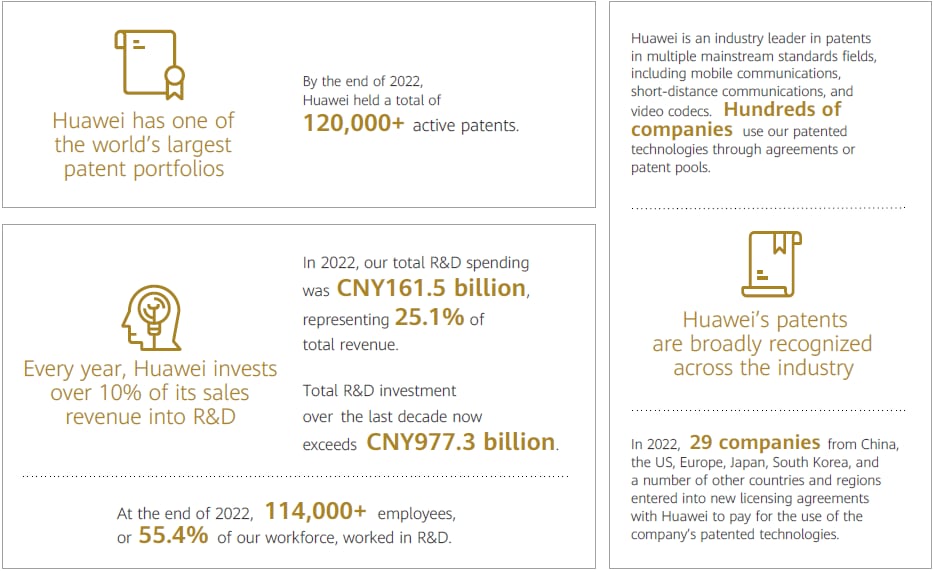Intellectual Property and Trade Secret Protection
Huawei is dedicated to its long-term investments into R&D and continuously enriching its intellectual property (IP) portfolio. Huawei is one of the world's largest patent holders, holding more than 120,000 active patents by the end of 2022. We believe that respecting and protecting IP is the bedrock of innovation. As a follower, practitioner, and contributor of IP rules, as well as an innovator, Huawei invests heavily into IP protection and respects the IP of others. We have reached cross-license agreements with major ICT companies around the world, and work tirelessly to cultivate an industry environment that protects innovation and IP across countries and regions.
We explicitly prohibit our employees from improperly acquiring, disclosing, using, or disposing of the trade secrets of others. The key measures Huawei has taken to protect the trade secrets of others include:
- Issuing our Regulations on Respecting and Protecting Third Party Trade Secrets, which set out clear rules that employees must follow to respect and protect the trade secrets of others during business activities and ensure that employees carry out business activities legally and in accordance with our contracts
- Embedding trade secret protection requirements into business processes such as R&D, sales, procurement, and HR, conducting regular reviews, and continuously improving management mechanisms by taking away lessons and case studies from day-to-day operations
- Organizing publicity, training, and exams on trade secret protection for all employees, so that they are fully aware of their obligations and responsibilities regarding trade secret protection compliance
- Conducting supervision, including checks and audits, to examine efforts aimed at protecting the trade secrets of others and thus ensure effective implementation of our policies, rules, and processes
- Establishing an accountability system based on official corporate policies such as the Accountability Protocol for Infringements of Other Parties' Trade Secrets and the Accountability Rating Criteria for Information Security Violations to hold violators accountable for any trade secret violations


